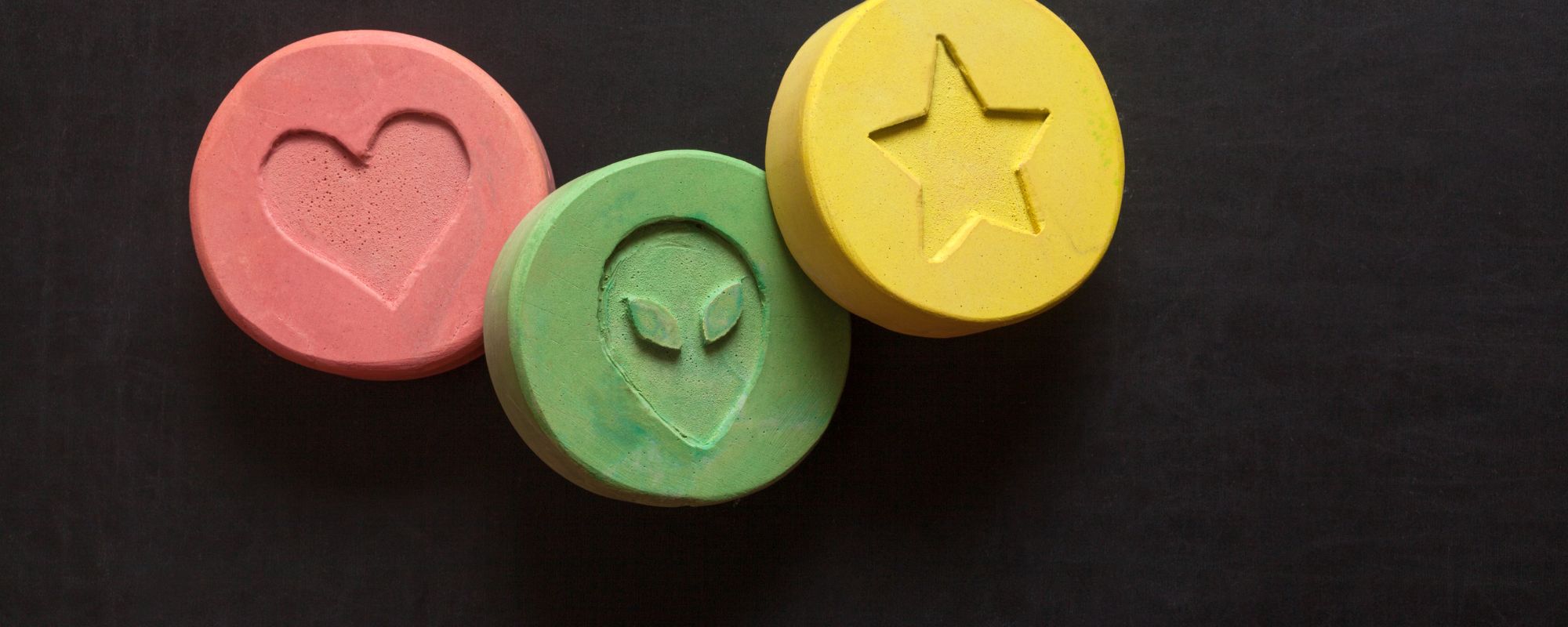What Is Alcohol?
Alcohol is a chemical substance often used for its intoxicating effects in various drinks. The type of alcohol found in alcoholic beverages is known as ethanol or ethyl alcohol, which is a psychoactive substance that causes different effects on the body and brain. It’s produced through the fermentation of sugars by yeasts, a process used in making wine, beer, and distilled spirits. If you’re wondering if alcohol is a stimulant or depressant, read on!
Alcohol is considered a depressant rather than a stimulant because it slows down, rather than speeds up, our nervous system. Stimulants, on the other hand, increase neural activity, causing heightened arousal and energy levels.
However, in low doses, alcohol has stimulant-like effects.
When consumed in small quantities, alcohol can:
- Increase energy
- Decrease inhibitions
- Increase heart rate
- Increase dopamine levels
- Increase aggression and impulsiveness
As you consume more alcohol, it will begin to slow your body down. As your blood alcohol content increases, the depressant effects become more pronounced, leading to symptoms like impaired judgment, lack of coordination, slowed reflexes, and potentially loss of consciousness.
Alcoholic Drinks With Caffeine
People often mix alcoholic drinks with caffeine. Some examples of these are certain liqueurs, mixed drinks involving energy drinks, or cocktails made with coffee.
The reason this mix can be dangerous is due to the contrasting effects of alcohol and caffeine. While alcohol is a depressant, caffeine is a stimulant. Caffeine can mask the depressant effects of alcohol, making drinkers feel more alert than they actually are.
This may lead to the consumption of more alcohol than intended, as the person may not feel as intoxicated as they truly are. It can also increase the risk of alcohol-related harms, such as accidents, injuries, or alcohol poisoning. Furthermore, both alcohol and caffeine can dehydrate the body, leading to worse hangovers.
In recognition of these risks, some countries have regulations limiting the sale of premixed alcoholic energy drinks. However, it’s still important for individuals to be aware of the risks when combining alcohol and caffeine in any form.
What Is the Difference Between a Stimulant and a Depressant?
Stimulants are substances that speed up the body’s processes, including the central nervous system and the brain. They can make you feel more alert, attentive, and energetic, and can increase heart rate and blood pressure.
Caffeine is a common stimulant drug.
Other examples of stimulants include:
- Nicotine
- Amphetamines (such as Adderall)
- Methamphetamine
- Cocaine
Some stimulants are used in medical contexts to treat conditions like attention deficit hyperactivity disorder (ADHD), narcolepsy, and occasionally depression. However, misuse of these substances can lead to serious health issues, including addiction and overdose.
Depressants, on the other hand, slow down the body’s processes, including the brain and the central nervous system. They can help reduce anxiety, promote sleep, and induce feelings of relaxation and calmness. They also decrease heart rate and breathing rate.
Alcohol is a good example of a depressant.
Other examples of depressants include:
- Benzodiazepines (like Xanax)
- Barbiturates
- Opiates
Like stimulants, depressants can also be used medicinally. For instance, some are used for treating anxiety, insomnia, and seizures. As with stimulant drugs, misuse of depressants can lead to severe health problems like addiction and overdose.
Is Alcohol Addictive?
Yes, alcohol is certainly addictive. Alcoholism is the most common of all substance use disorders in the United States. According to the Department of Health and Human Services, nearly 30 million American adults suffered from alcohol abuse in 2021.
Alcohol stimulates the release of various neurotransmitters in the brain, leading to feelings of pleasure or relaxation. Over time, the brain adapts to these changes, leading to physical and psychological dependence.
When someone is dependent on alcohol, they may need to drink more and more to achieve the same effects, a phenomenon known as tolerance. They may also experience withdrawal symptoms when they stop drinking, such as anxiety, restlessness, and in severe cases, seizures or hallucinations.
Get confidential help from our addiction and mental health treatment facilities located across the United States. Call to join one of our quality programs today!
Speak With Our Admissions TeamCan an Alcoholism Treatment Center Help?
If you or a loved one are struggling with alcoholism, you don’t have to face it alone.
We at Aliya Health Group seek to be a beacon, resource, and partner for those struggling with alcohol addiction. We offer affordable and compassionate alcohol addiction treatment, with alcoholism treatment centers all over the country.
After detoxing, proper treatment can begin.
There are several different approaches to treating alcohol addiction, including:
Residential Treatment
After successfully completing medical detox, you’ll transition to residential treatment, also known as inpatient treatment. There, you’ll receive medically-assisted treatment and dual diagnosis treatment to deal with any cravings or co-occurring mental health issues you may be battling.
In addition to individual and group counseling and medication management, you’ll also have access to leisure activities and family support services.
Partial Hospitalization
A step down from inpatient care but with more structure than conventional outpatient programs, a partial hospitalization program offers a good balance for those looking to ease back into normal life. Clients can receive care five to seven days a week for several hours each day, returning to their sober living homes in the evening.
This way, they can recover without putting their daily lives on hold, receiving intense therapeutic interventions like group and individual therapy, skills development, and medication management as necessary.
Intensive Outpatient Treatment
Clients undergoing this program participate in intensive therapy sessions, meeting three to five days a week, with each session lasting three hours. This level of care is a step down from partial hospitalization, requiring less time commitment.
IOPs offer participants the ability to continue their employment or academic obligations, receiving support and therapy as needed, as they prepare to reenter society.
Outpatient Care
Finally, there’s outpatient care. Outpatient care allows clients to receive care without neglecting their responsibilities at home. It also tends to be significantly more affordable than higher levels of care.
Looking for quality treatment for substance abuse and mental health that’s also affordable? Aliya Health Group's treatment facilities accept most major insurance providers. Get a free insurance benefits check now!
Check Your CoverageStart Your Alcoholism Recovery Journey Today
At Aliya Health Group, we can help you get through alcohol withdrawal using one of our treatment programs. Not all rehab centers offer holistic therapy for alcohol detox and alcohol rehab. Our recovery center offers the inpatient and outpatient rehab options you need to end an alcohol dependence.
Addiction recovery or mental health treatment is just a phone call away. If you or a loved one are thinking of seeking treatment for addiction to alcohol but have questions, call us at 888-965-3085. Our highly qualified staff will be happy to assist you if you’re ready to end an addiction to drinking alcohol.

















